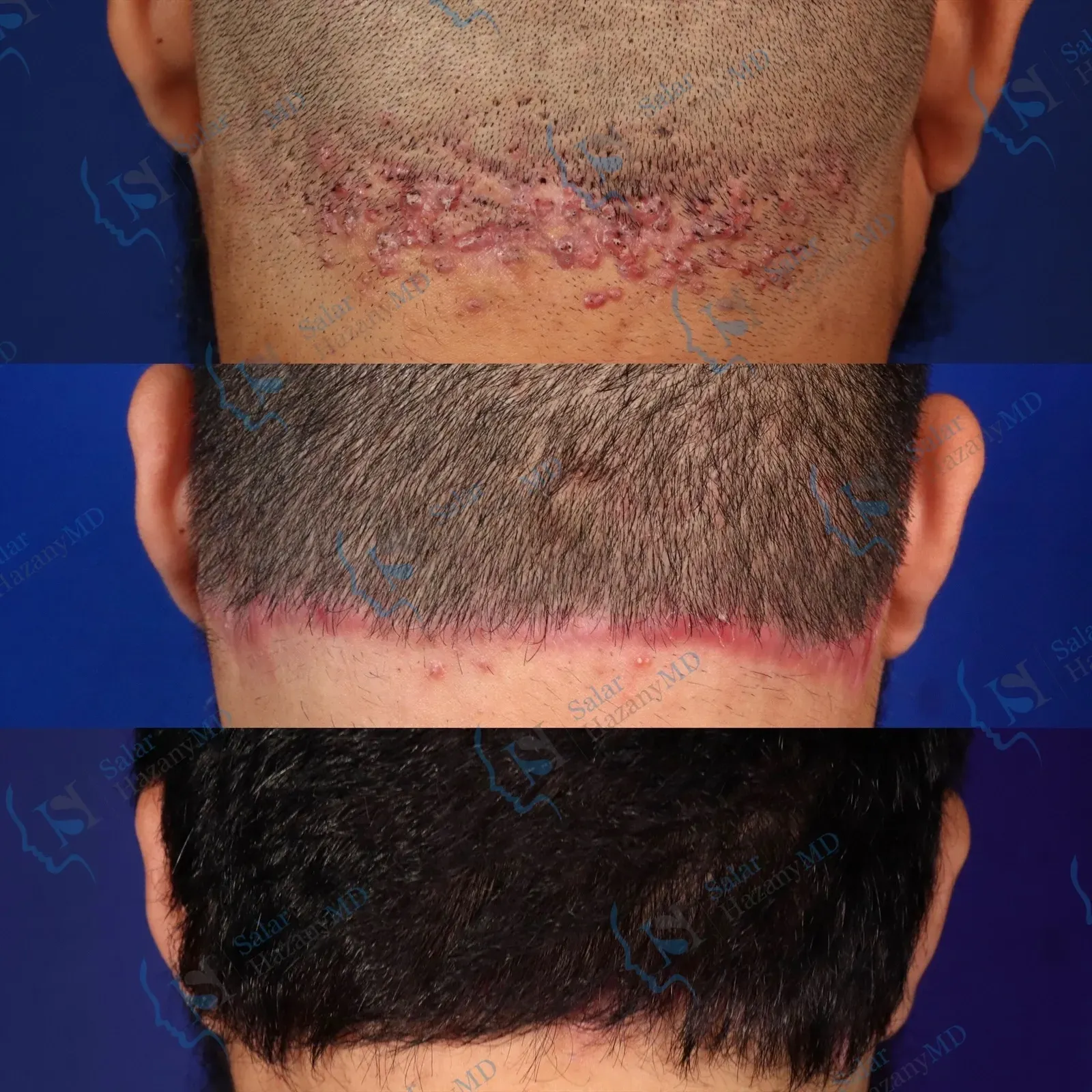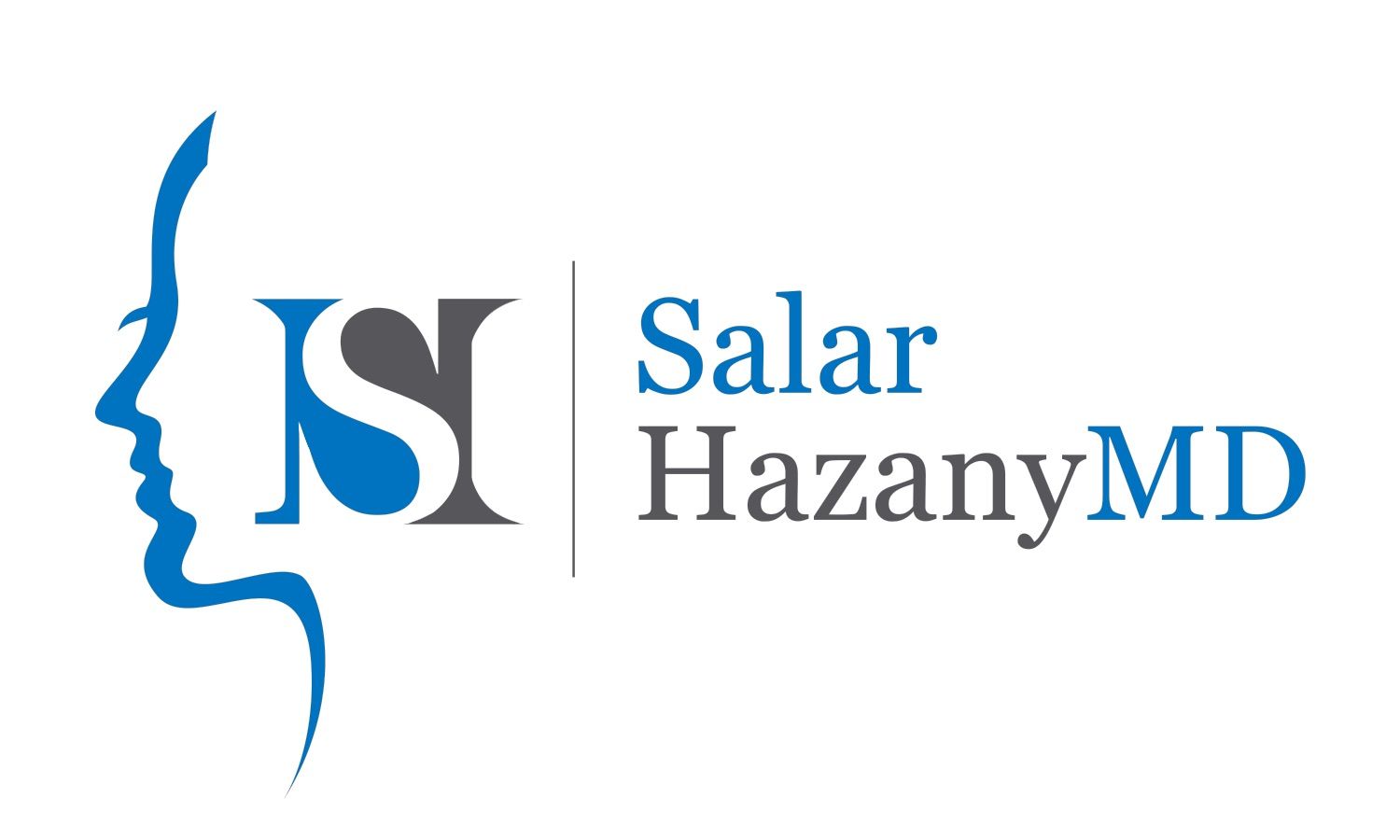Acne Keloidalis Nuchae TreatmentBeverly Hills & Los Angeles
Expert Acne Keloidalis Nuchae Treatment in Beverly Hills and Los Angeles

What is Acne Keloidalis Nuchae?
Acne Keloidalis Nuchae (AKN) is a skin condition that primarily affects the back of the neck and sometimes the scalp. It's characterized by the development of bumps, nodules, or pustules that can become inflamed and may eventually lead to the formation of scars, sometimes in the form of keloids (thick, raised, and often darkened scars).
Symptoms can include:
- Small, pimple-like bumps
- Redness or inflammation
- Itching or tenderness
- Scarring, which may form keloids (raised, thickened scars)
What Causes Acne Keloidalis Nuchae?
AKN is primarily caused by irritation and inflammation of hair follicles, often due to ingrown hairs, shaving, or friction from tight clothing or collars. It’s more common in individuals with curly or coarse hair, as these hair types are more prone to follicle blockages and ingrown hairs. Genetics also play a role, as AKN is more frequent in those of African descent and those with a family history of keloids. Other factors like hormonal changes, excessive sweating, pre-existing skin conditions, and bacterial infections can also contribute to the development of AKN. The repeated inflammation of hair follicles can lead to scarring, often in the form of keloids.
How is Acne Keloidalis Nuchae Treated?
Treatment for AKN typically involves a combination of approaches aimed at reducing inflammation, preventing scarring, and managing symptoms. Topical treatments like corticosteroids or retinoids can help reduce inflammation and prevent new bumps from forming. Oral antibiotics or anti-inflammatory medications may be prescribed if the condition is infected or particularly inflamed. In some instances, surgical removal of large keloid scars may be necessary, though this can sometimes lead to further scarring. Preventative measures, such as avoiding shaving the affected area, reducing friction, and using gentle skincare products, can help manage the condition. In some cases, regular maintenance treatments may be needed to control flare-ups. Consulting with a dermatologist is crucial for a personalized treatment plan. Reach out today to get Dr. Hazany's expert opinion!

Los Angeles board-certified dermatologist, micrographic dermatologic surgeon, and Mohs micrographic surgeon, Dr. Hazany, of Salar Hazany MD in Beverly Hills provides his patients with world class skincare. He offers skin cancer removal, active acne treatment, acne scarring removal, minimally invasive cosmetic dermatology procedures, and much more to patients of all ages from the Greater Los Angeles Area and all over Southern California including Beverly Hills, Bel Air, Brentwood, Century City, Westwood, Hollywood, West Hollywood, Santa Monica, Malibu, Venice, Marina Del Rey, Glendale, Pasadena, and the San Fernando Valley.
Contact Us
Address
421 N Rodeo Dr Suite T-13
Beverly Hills, CA 90210
Phone
drsalar@hazanyderm.com
Hours of Operation
- Monday
- -
- Tuesday
- -
- Wednesday
- -
- Thursday
- -
- Friday
- -
- Saturday
- Closed
- Sunday
- Closed
Contact Us
Address
421 N Rodeo Dr, Suite T-13 Beverly Hills, CA 90210
Phone
Fax
(424) 352-3569
Hours
- Monday
- -
- Tuesday
- -
- Wednesday
- -
- Thursday
- -
- Friday
- -
- Saturday
- Closed
- Sunday
- Closed